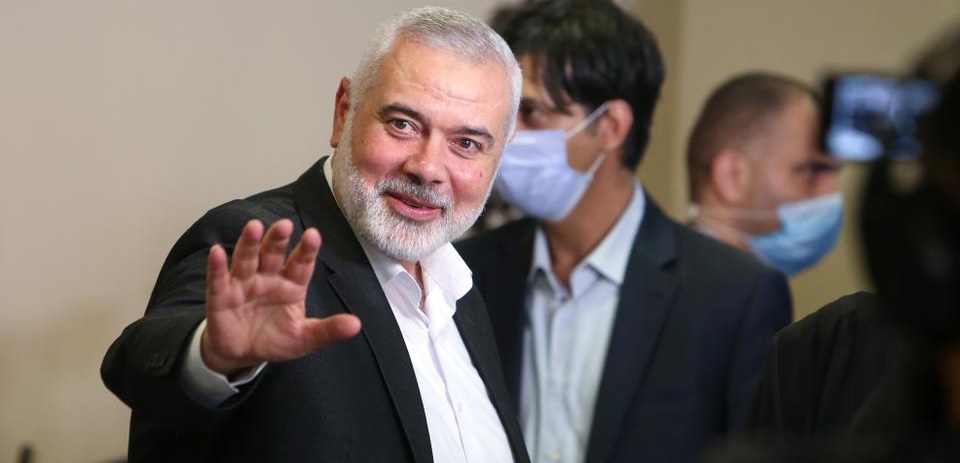In this connection, a high-ranking Hamas delegation led by Ismail Haniyeh, the head of the movement’s political bureau, and Khaled Mashaal, the movement’s leader abroad, arrived in Saudi Arabia for Umrah pilgrimage.
Beside performing Umrah, this delegation is expected to have important meetings with Saudi authorities and discuss important bilateral cases, including the relations between Hamas and the Kingdom and closing the case of Palestinian detainees in Saudi Arabia. In a statement, Hamas called diplomatic rapprochement with Saudi Arabia an “important step towards the “unity of the Islamic Ummah”, and would help increase security, regional stability, and understanding between Arab and Muslim countries. Hamas emphasized that this step was in line with the interests of the Palestinian cause and in support of the resistance to Israel’s aggression against the Palestinian nation and its sanctities.
Relationship of Riyadh and Hamas has been strained over the past two decades. This trip is expected to ease their differences and mend their ties.
Deescalation with Hamas
Hamas leaders’ visit to the kingdom comes as relations with Saudi Arabia have been tense since Hamas took control of Gaza after general elections in 2006 and expelled the leaders of the Fatah movement from the enclave. Since then, the Saudis grew angry with Hamas and responded by supporting the Palestinian Authority, which is a rival to Hamas.
Seeing Hamas activities as a threat to its interests, Saudi Arabia declared the Muslim Brotherhood (MB) and Hamas as terrorist entities in March 2014, and since then has taken many measures against them. Riyadh considers the MB as a regional rival, and along with allies such as the UAE and Egypt, it adopted a strategy of pressure on the Islamist group in association with President Abdel Fattah el-Sisi of Egypt. It was in this period that crisis with Qatar in 2017 and tensions with Turkey, both making the core of the MB, erupted, and the pressure on Hamas activities in Saudi Arabia was also stepped up in such a way that even a number of Hamas members in the kingdom were arrested under security and terrorist attacks allegations.
Advancing normalization with the Israeli regime and finding any relationship with Palestinian resistance a threat to the thaw process, the UAE and Saudi Arabia never risked damaging their growing up alliance with the Israelis by supporting Hamas in recent years. To this end, they forsook the Palestinian cause and turned a blind eye to the Israeli crimes in Gaza and the West Bank.
Given these pressures, one could hardly think that the Saudis would one day stretch hands of friendship to Hamas leaders. This progress in regional cases is very much tied to recent Iran-Saudi Arabia détente agreement. The Saudi show of willingness to deescalate with Hamas and also future progress in the Lebanese case and even potential improvement of ties with Hezbollah are part of the Saudi foreign policy U-turn to deescalation of tensions with the Iran-led Axis of Resistance.
This is considered to pose a serious threat to the Israeli regime, which in the past three years has tried to keep the Arabs away from Hamas and Islamic Jihad movements to continue its occupation uninterrupted. The Saudis have come to the conclusion that if they are going to cooperate with Iran in the region, they must step in the same direction on many important regional issues, and supporting the Palestinian resistance groups is one of the cases.
Pouring cold water on the normalization body
The Saudi hosting of Hamas delegation followed desecration to the the holy Al-Aqsa Mosque in recent weeks by the hardline Israeli cabinet, which aroused the ire of the Muslim countries including Saudi Arabia. The Saudi-Hamas détente demonstrates that the Saudis are no longer focused on the normalization case with the Israeli occupation and this pours cold water on the agenda of Netanyahu who since return to power about four months ago set his heart on coexistence with the Saudis. The Israeli media could not hide their concern about the trip and suggested that it deals a blow to the Israeli diplomacy in West Asia.
This move by Riyadh, together with the unity of Muslims against the Israeli regime in recent weeks, shows that the normalization plan has been removed from the Arab countries’ table for now. The Saudis are extremely worried about the activities of the Israeli radicals and are trying to get close to the Gaza resistance groups to send this message to Netanyahu and his orbit that the continuation of the occupation and crimes in the West Bank will not bear good consequences to Tel Aviv. Since the formation of far-right government in Israeli regime, the Saudis have taken a strong stance several times in response to the expansion of settlements in the West Bank and violent confrontation between the Israelis and Palestinians.
It seems that Hamas leaders will work to persuade Saudis for more support to the Palestinian cause, and should Riyadh develop further convergence with the Palestinian resistance, the Israeli regime will go under tighter security encirclement, and this can accelerate its collapse at a time the protests in the occupied territories are unfolding. Saudi Arabia has recently mended ties with Syria, another member of Axis of Resistance, and will soon reopen its embassy in Damascus. This is another worrisome issue for the Israelis.
The Israelis were hopeful that by involving the Saudis in the
normalization project, they will gain legitimacy in the Arab world and
break their decades-long security and political isolation, but all their
plans are shattered now and West Asia developments are going against
their will and anti-Israeli security encirclement is expected to grow
tighter from now on.
/129

